O Apartment by Paritzki & Liani Architects
Perforated metal screens conceal rooms and storage space in this Tel Aviv apartment by Israeli studio Paritzki & Liani Architects (+ slideshow).
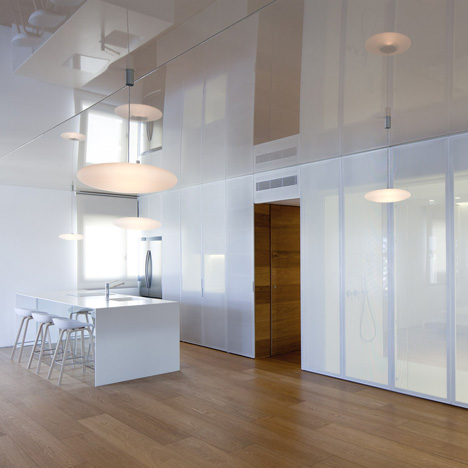
Paritzki & Liani Architects lined two walls of the 110-square-metre flat with hinged translucent panels to hide away everything except the kitchen counter and a sofa.
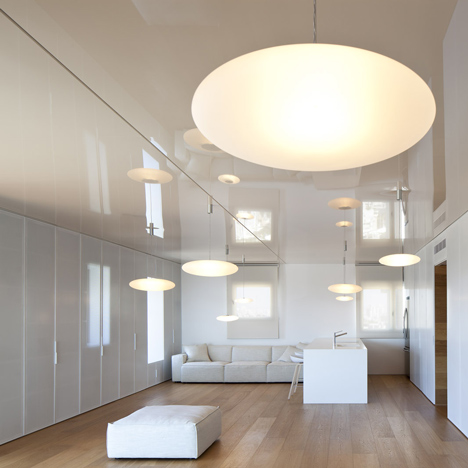
"The idea was to thicken the existing walls with vertical perforated metal panels that may be opened and closed, forming a thick wall that contains functions of the habitat," said the architects.
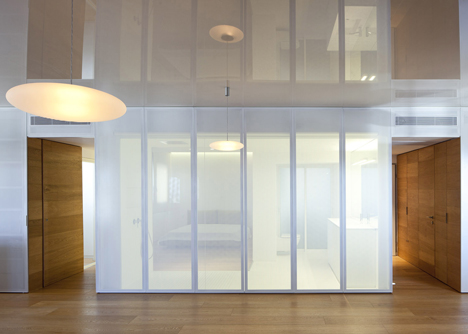
The walls open up to reveal kitchen units, the master bedroom and bathroom on one side of the main living space, and shelving along the other.
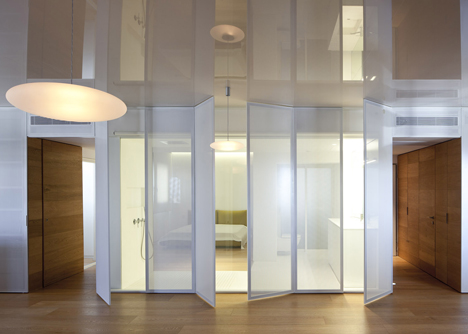
These spaces remain obscured until lights within are switched on and the glow emanates through the panels.
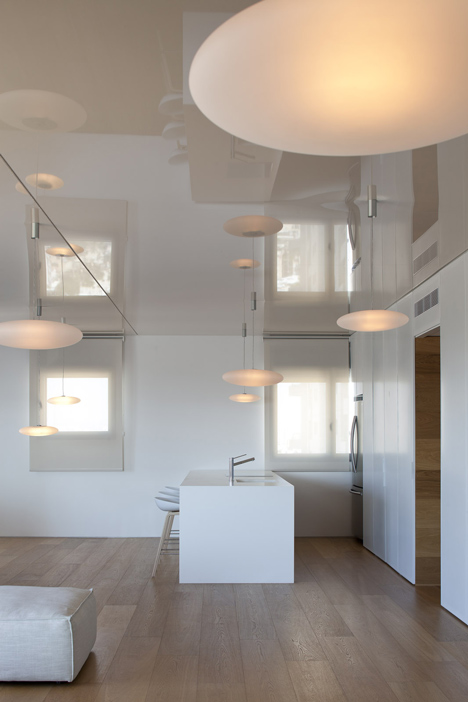
Larger windows are left unmasked, but smaller ones are consumed by the screens or covered with similar translucent blinds.
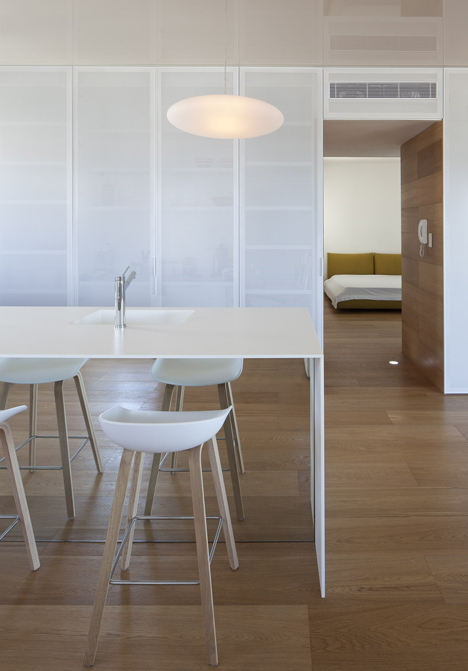
Doorways and corridors leading from the entrance and into the bedroom are lined with the same wood as the floor.
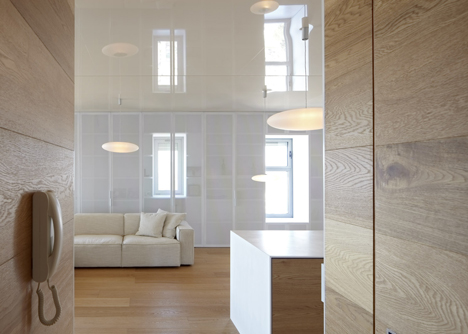
Positioned in front of the bedroom, the bathroom sits right up against the panels but is still separated from the living area by large sheets of glass.
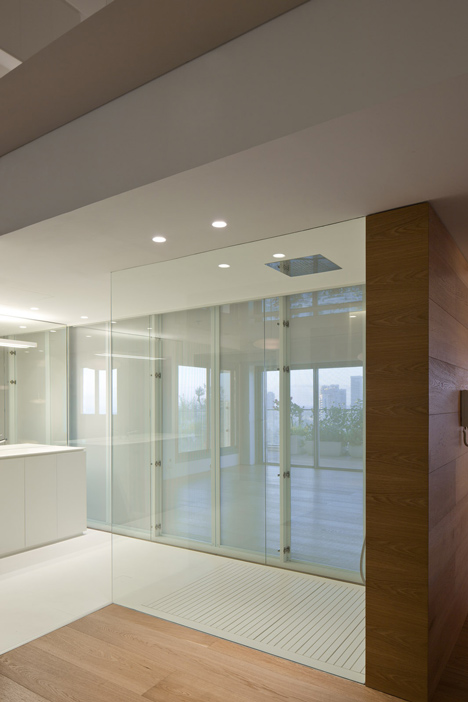
Elliptical lights suspended at different heights look like hovering UFOs and are reflected in the shiny ceiling.
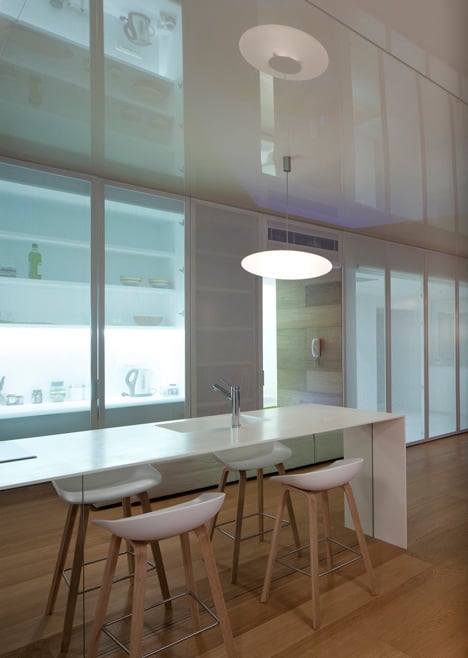
A walk-in wardrobe is located completely out of view behind the kitchen and an L-shaped balcony faces west to look out over the city's skyline.
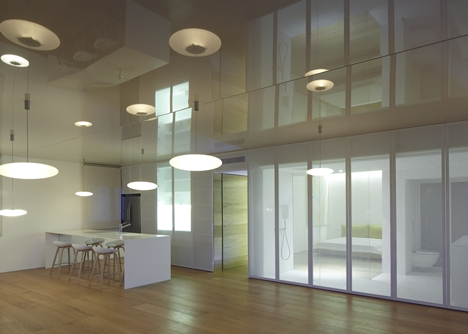
Also in Tel Aviv, Paritzki & Liani have squeezed a house with an exposed brickwork interior into a space between two existing properties and installed a PVC ceiling at an apartment to mirror a panoramic view of the harbour.
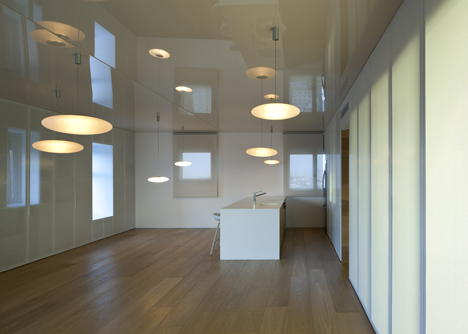
Photography by Amit Geron.
See more apartment interiors »
See more projects by Paritzki & Liani Architects »
See more architecture and design in Israel »
The architects' project description follows:
In an anonymous high-rise building, among many of those surrounding our skyline; we've decided to use the interior of this 110 sqm flat to elaborate, with simple elements, walls and lights, an experiment on the nature of perception.
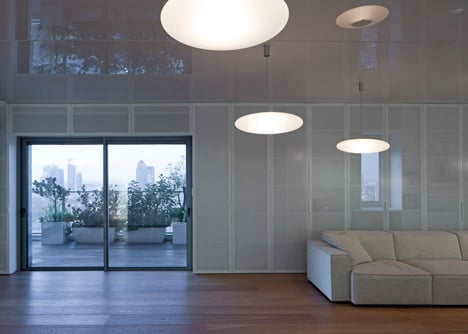
The idea here is to thicken the existing walls with vertical perforated metal panels that may be open and closed; forming this way a thick wall that contains functions of the habitat (kitchen, closets, library, bathroom, storage). Above all, this wall is an optical device that transforms, depending on the type of light used, and modifies the height and depth of the space. In the light of day this thick perforated wall, composed of variable thicknesses, becomes a three dimensional veil that makes opalescent the different areas of the flat. Niches and deep spaces create visions of transitional forms.
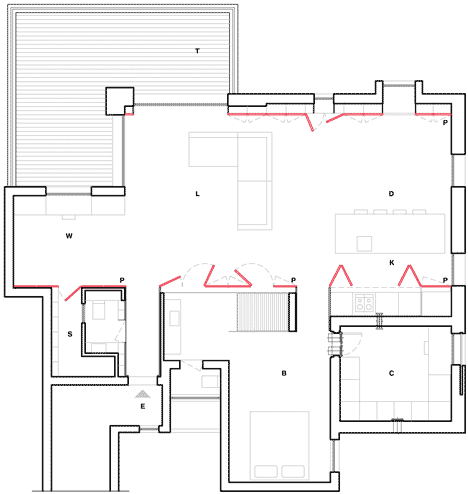
In the dark we've drawn attention to a ritual passage, familiar to all of us, once we enter our home at night; the passage from darkness to illuminated space. Here we create a second view to the inhabitants. Our device adds new parts to the space, transforming itself into a remote architecture with new and profound windows: the vision exceeds the measurable borders of the flat.
The appearance of this new place vanishes once the lights are turned off.